-
- Research at HERO Lab.
-
The HERO Lab has been performing various topics of hydrogen-related research that can be summarized below.
A. Clean (CO2-free) hydrogen-production: green, blue, and turquoise hydrogen production
B. Fuel cell power generation: SOFC stack development, highly-efficient system design/demonstration, hybrid system design/demonstration.
C. Simulation, analyses, and optimization: energy system analysis using exergy-based methods, off-design analysis, dynamic simulation, economic analysis, and life cycle assessment (LCA)
All the research at HERO Lab uses both computational methods and experimental approaches. Therefore, the students or researchers of HERO Lab are highly encouraged to learn both skills, cultivating their capabilities in both areas at HERO Lab.
2022.07.21
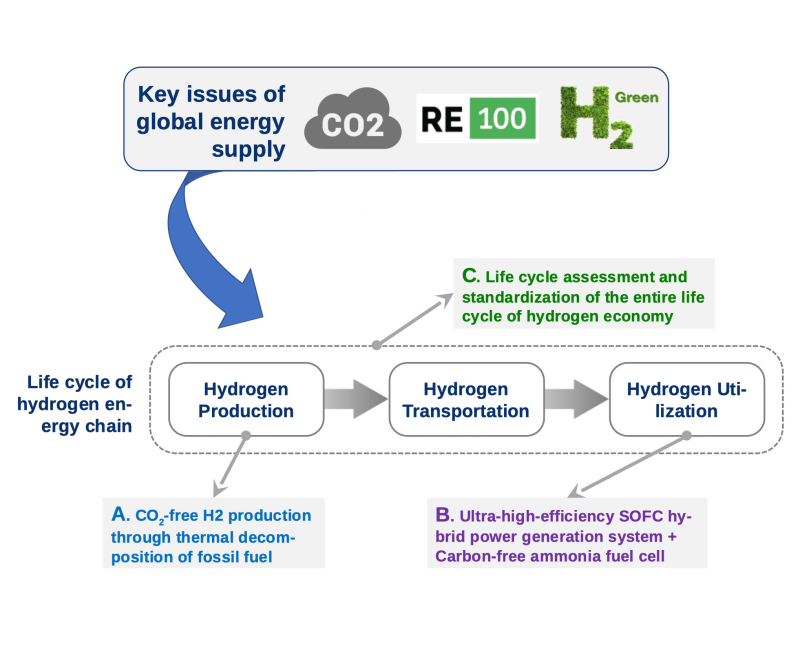
-
- High temperature reactor design for turquoise hydrogen production
-
Hydrogen can be produced using methane pyrolysis without CO₂ emission, the turquoise hydrogen production. In a high-temperature pyrolysis reactor, the methane (CH₄) feed is directly decomposed into solid carbon (C) and hydrogen (2H₂).
HERO Lab. has been being devised a high-temperature reactor and examined the reaction's kinetic characteristics. Also, the overall process, including reactor, heat supply, and purification, has been designed, simulated, and optimized in terms of thermodynamic efficiency, economics, and environmental performance.
2022.07.21
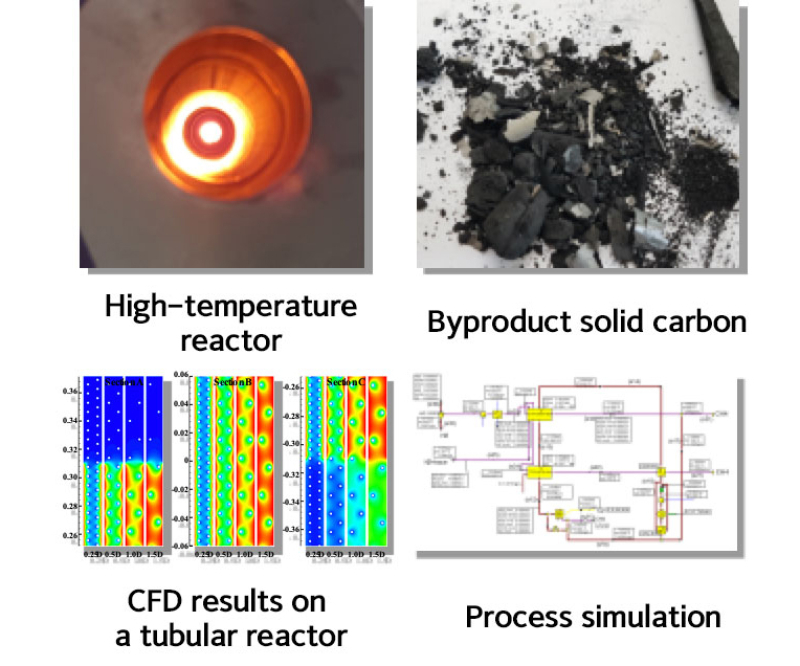
-
- Simulation and process optimization for waste heat powered SOEC
-
SOEC (solid oxide electrolysis cell) operates at high temperatures over 700 degrees C, using ceramic-based electrolytes, e.g., yttria-stabilized-zirconia. Being compared to other types of electrolysis, such as PEM electrolysis or alkaline electrolysis, SOEC is favorable in electrical energy use since SOEC can be integrated with other thermal facilities, such as incinerators, steel-making plants, cement plants, and high-temperature nuclear reactors.
HERO Lab. has been being studied various integrations of SOEC and other thermal facilities. Process modeling, dynamic simulation, off-design calculation, economic analysis, life cycle assessment has been performed to figure out the most economically and environmentally feasible option.
2022.07.21
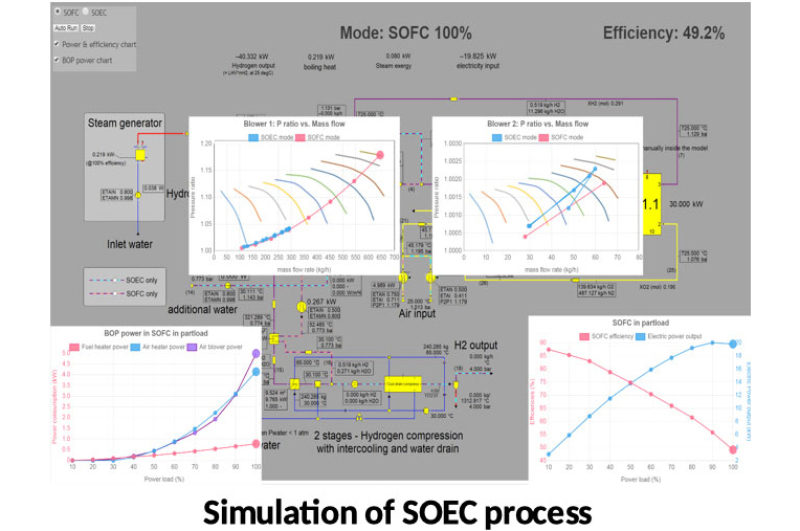
-
- SOFC/SOEC stack development
-
SOFC (solid oxide fuel cell) operates at high temperatures over 700 degrees C, therefore its energy conversion efficiency is higher than that of low-temperature fuel cells. Also, SOFC is very fuel flexible; CO, CH₄, biogas, and ammonia (NH₃) can be directly utilized as fuel without any pre-treatment. In this sense, the SOFC has been regarded as the most promising fuel cell.
HERO Lab. has been being devised a SOFC stack, primarily focusing on the flow field design, thermal management, pressure control, and structural stability. Computational fluid dynamics (CFD) has been used as a tool for preliminary study, then the experimental investigation has followed to confirm the design.
2022.07.21
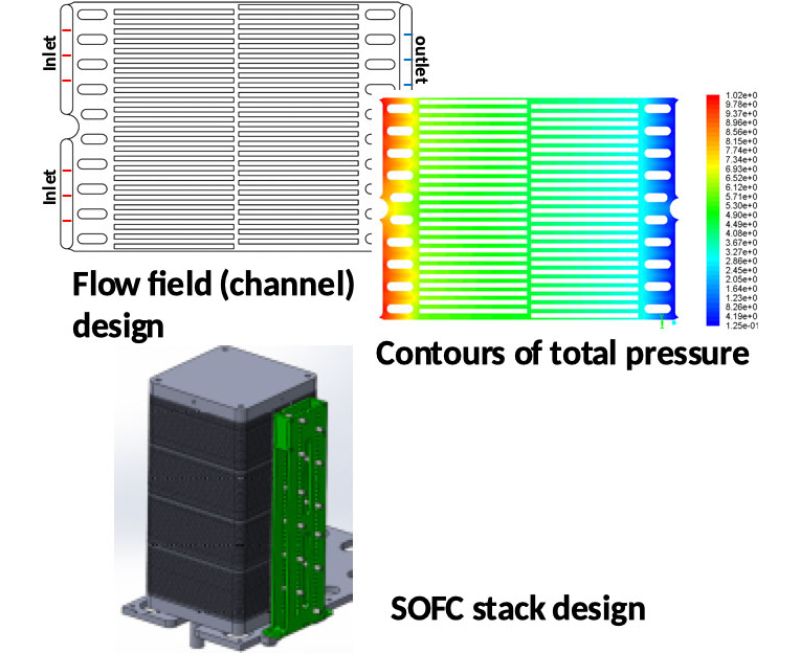
-
- SOFC hybrid power generation
-
A SOFC-engine hybrid system is a synergic combination of a SOFC and an internal combustion hydrogen engine. In the hybrid system, the unreacted fuel substance released from the SOFC is burnt in the engine, generating more electricity and increasing electrical efficiency.
While working at KIMM, Prof. Lee led the project with MiCo company and other universities and succeeded in demonstration system integration and operation at 5kW-class.
HERO Lab. has been being planned further research, primarily focusing on the system optimization, control scheme design, and scale-up design up to MW class. Novel concept design also continues to propose a better idea of such hybrid systems. Cooperative research with industries and research institutions is necessary to realize this concept.
2022.07.21
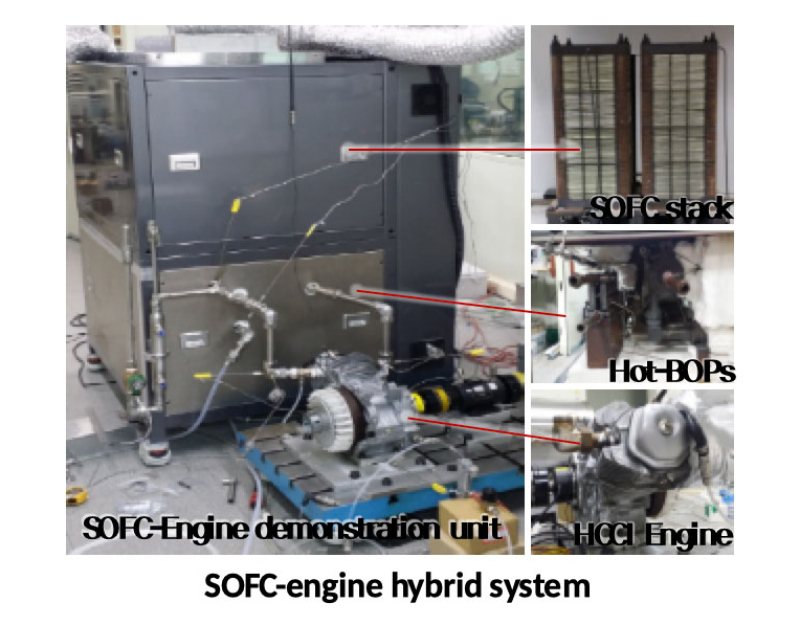
-
 HERO Lab
HERO Lab
Researches
 HERO Lab
HERO Lab